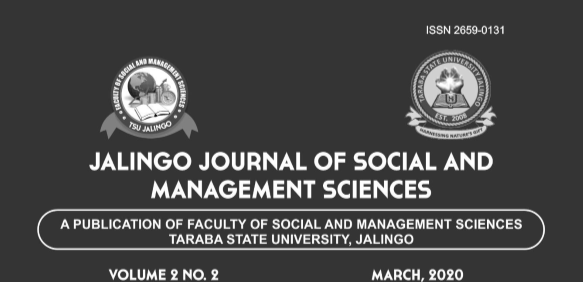A Sociological Analysis of Fiscal Federalism and Sustainable Development in PostColonial Nigeria
Keywords:
Conflict, Derivation, Development, Fiscal Federalism, Sustainable developmentAbstract
This study attempts a Sociological analysis of fiscal federalism and sustainable development in the post-colonial Nigeria. Nigeria. In doing this, the study discusses concepts such as- federalism, fiscal federalism and sustainable development. The study adopted both evaluator and assessment methods, and used qualitative and secondary data sources such as journals, textbooks, relevant online information and other scholarly literature to analyze the various dimensions of revenue sharing formulas since 1960 and their economic implication on sustainable development in Nigeria .The paper also adapted ‘deprivation theory’ as theoretical framework to discuss the failure of the current fiscal relations in enhancing national development. Unarguably, fiscal responsibilities and taxing powers have remained considerably centralized and have been inhibited by several factors in Nigeria which include; the dominance of the central government in resources distribution, military interregnum in governance, and the centralized source of revenue on central government. The study, therefore, recommended that distribution of resources should be in the following formula; federal government (30%), states government (45%) and local government (25%). Similarly, the 1999 Constitution should be reviewed to allow states to have a stake in mineral deposits in their respective states and pay taxes to the federal government, while the devolution of power and fiscal responsibility to federating units must be pursued in earnest to stimulate growth and healthy competition among federating states.

Downloads
Published
Issue
Section
License
Copyright (c) 2023 JALINGO JOURNAL OF SOCIAL AND MANAGEMENT SCIENCES

This work is licensed under a Creative Commons Attribution-NonCommercial 4.0 International License.
